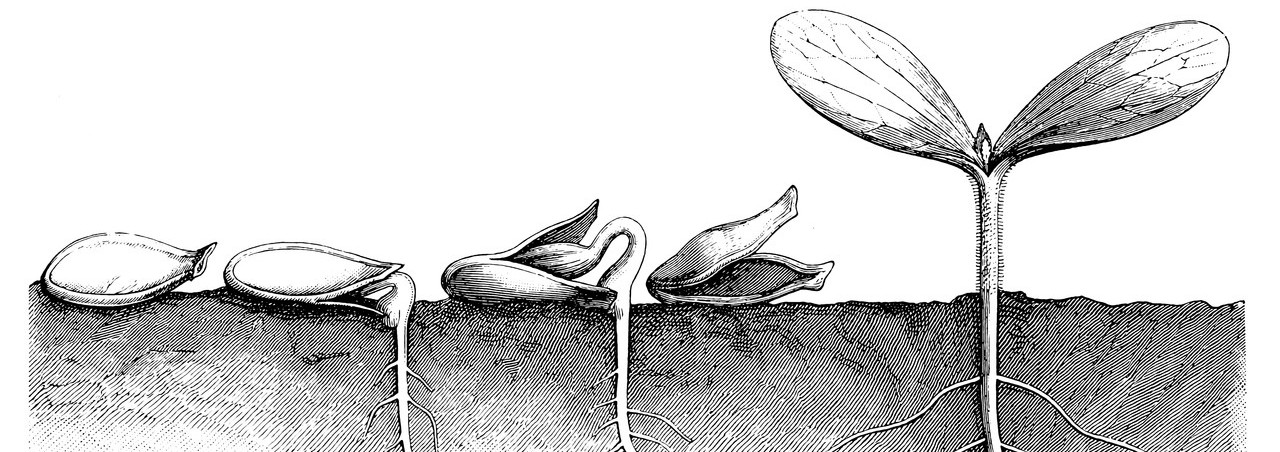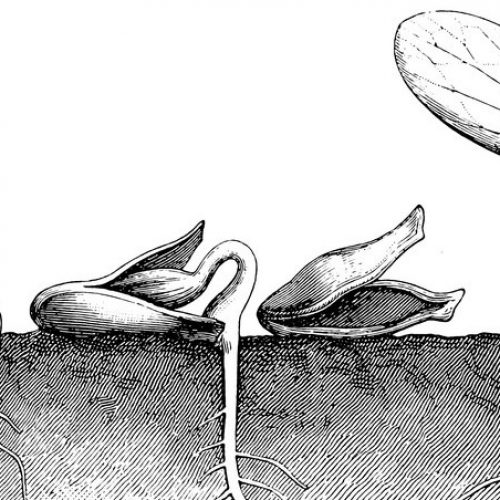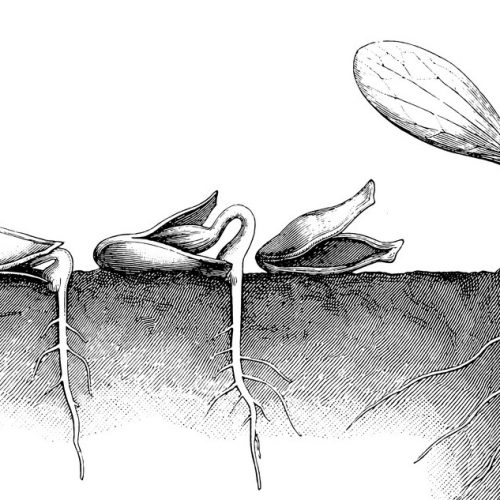The impetus for creation is often thought to be love: divine love, parental love, the blessings of cheerful muses. However, love, in all its squidgy warmth, was not the radicle of Kerri Arsenault’s premier book, Mill Town: Reckoning with What Remains. Arsenault grew up in rural Mexico, Maine in the shadow of a paper mill. Like many mill towns in the latter days of the 20th century, the area, nicknamed “Cancer Valley,” was a tough place for anything to grow and flourish. What is needed in such environments is a deep root system and a fair amount of grit. Arsenault’s book demonstrates an abundance of both as she examines issues of environmental justice, the decline of the working class in America, and the economic marginalization of rural towns, as well as her personal and family history. She digs deep, into the lives of her Acadian ancestors, into Department of Environmental Protection records, and into the workings of labor unions and municipal government. As I read Mill Town, my horror at the laxness of environmental regulation was always counterbalanced by my admiration for the writer who insisted on uncovering and sharing the truths of reality as it is, instead of pining idly after how it should be.
~Rosanna Gargiulo, Editor
Rosanna Gargiulo: Mill Town: Reckoning with What Remains is your first book publication. When did you know you were writing a book manuscript? Was that always your intention, or did it form holistically? How long did writing Mill Town take you?
Kerri Arsenault: I didn’t start out with a book in mind. In fact, I hadn’t really written much since graduating from college in 1989. I was just researching my genealogy. As I outline in the book itself, which is really about writing the book in many ways, I began to accumulate stories about my family. Then in 2013-2015, I attended the New School’s MFA program and my instructors, mainly John Freeman and Zia Jaffrey, pointed out that I was indeed writing a book and that the book was about family and environmental legacies and that perhaps I ought to keep going. Thing is, I didn’t go to grad school to write a book. I wanted to be an editor. But after dozens of job applications to publishers and no response, I kept working on this story.
I mean, I had wanted to write a book someday; I just didn’t think it would be THIS book. So there was an unconscious intention to write a book, but I needed outside forces like John and Zia, the support from my husband, and a little bit of magic.
Mill Town took me about ten years to research and write (2009-2019), which are also the parameters of the book. Or twenty years if you include when I started researching my family history.
Rosanna Gargiulo: In Mill Town, you grapple with a historical and cultural erasure. You conduct research, including looking up old documents, reviewing DEP records, interviewing people, and visiting genealogically significant locations. What research approaches worked best for you? What advice would you give to new writers regarding research projects and strategies?
Kerri Arsenault: Follow your curiosity. Sure, make an outline, but don’t declare fealty to that outline or an idea, otherwise, you may miss or ignore what the story is really about. Or you just may overlook other stories and ideas. And listen. You gather more information by shutting your mouth and listening to what others say. Also, don’t play arbiter and judge about the people or places you write about. Tell the story. Don’t just deliver information. In other words, complicate the story by asking questions rather than answering them. Oh, and finally, write against cliché: not just in the words you choose, but in narrative, tone, endings, plot, and so on.
Rosanna Gargiulo: You also grapple with cultures of silence and secrecy, sometimes corporate silence, but also sometimes the privacy of beloved family members. Were you ever worried about publishing Mill Town and what the response to your book would be? How did you process people’s desire for privacy with the needs of your creative project? Were there elements that you decided to leave out? Why? Will you do anything differently next time around?
Kerri Arsenault: Most of the main characters in my book are people I know or love and as I mentioned above, and because I wasn’t writing in judgment of them, I wasn’t worried about people being upset. Because of my relationships with those people, and because I grew up in that town, shared the same childhood, shared memories and lifestyles, they may have been more candid with me than perhaps they would have been with an outsider to our community. Further, I never divulged anything someone requested I not divulge, so secrets are safe with me. On that note, I won’t tell you what I left out. That’s a silence I will maintain. I would never sacrifice a person’s privacy for a good sentence, an untold story, or a thrill. That’s just cruel and unnecessary. A good writer can find their way around such things.
Rosanna Gargiulo: You also encountered several helpers, people who were willing to talk, take you on tours or meet for lunch (though they often had some professional interest in doing so), and share private journals, etc. There has also been significant statewide (and national) acclaim and interest in your book. How did writing Mill Town change your relationship to your subject? Your home town and community? Your home state?
Kerri Arsenault: I hated Maine. That hate drove me. Mill Town was never driven by love. Love was what I found writing it. Writing about a place I hated opened up pathways to understanding I never would have had, like the rise and fall of the working class and subsequently, the disenfranchisement of my town, my ancestors, my family. I would have never connected my town to systemic issues of how some people (poorer, working class, less educated) are far more susceptible to social injustices. I would have never learned about my Acadian ancestry. I would have never learned how this all connected to my own identity. I would have never come to love Maine if it wasn’t for my hate.
Rosanna Gargiulo: About midway through Mill Town’s narrative timeline, your father passed away. As a reader, I experienced the narrative equivalent of a sudden drop in atmospheric pressure, like a storm just breaking. Did that event change the direction of your book? Did that affect your writing routines? How did you move forward with your manuscript through times of upheaval?
Kerri Arsenault: I was in the middle of grad school when my father got sick then died, so it wasn’t an option to just stop writing. This is how I was brought up. You finish the job, no matter what. I do shift the pressure of the narrative after his death, as I wanted to examine the present day rather than the past, which I feel like the first half of the book does. The book is divided into two parts – past and present – with his death in the center. Each later chapter is connected to an earlier chapter, so like chapter 16 speaks to chapter 1 and so on. This reflects the idea that the past is very much tied to our present-day lives, especially in working class towns. At the middle of the book is my father’s death, which is not to say it’s the center of the story, but shows that death was at the center of our lives, like the bullseye we always had on our backs. See, we were kept in a state of gradual and perpetual injury, to the nondeliberate exposure to the possibility of death.
Rosanna Gargiulo: In the second half of the book, you take on Nestle water and the mixed effects of industry on Maine towns. I’m guessing that in your research you encountered several other examples of businesses that offered towns financial investment and news jobs in exchange for resource extraction. You also take on the elimination of unions and the destruction of the working class. How did you decide what to research more deeply and what to let go of? How did you decide what to keep in the final manuscript?
Kerri Arsenault: Anything and everything in service to the themes and narrative stayed in the book. Everything else was removed. Nestle was not just a new example of resource extraction that mirrored the resource extraction of forest-related industries, but it helped show the tension between being an insider and an outsider to a place (I started a water activist group in town during the writing of the book). It asked questions like: who gets to have a say about the future of a town or a landscape? Who gets to call a place home? What does it mean to love a place that doesn’t love you back?
The destruction of the working class was one of the major points of the book. The environmental pollution contributed to that destruction and contributed to the destruction of my family, so those two legacies (family and environment) ran along parallel tracks. See, the book is largely about attrition and accumulation. The more evidence and knowledge I accumulated, the more attrition I could see. So it was/is a never-ending cycle and story…like Russian nesting dolls, or a black hole in the universe, or a Pandora’s box. Or some such metaphor. Accumulation = attrition. And it all ends up at the mouth of a river and into the sea, which is where my book ends.
Rosanna Gargiulo: The subjects of pollution and the exploitation of rural, economically marginalized communities are both well-trodden within a particular canon and perhaps underrepresented for wider audiences. In the Anthropocene, environmental writers often battle despair and a sense of hopelessness in their work. Did you ever have to push through feelings of hopelessness and powerlessness as you took on big business? Did you have a particular hope for Mill Town that sustained you?
Kerri Arsenault: Wringing my hands or writing about hand-wringing is a waste of time. Worry and stressing about things is unproductive. And my feelings are beside the point. This is a story larger and far more complicated than me. I tried to reflect the powerlessness of such communities by writing about how complex it is, even for me, someone who spent ten years trying to uncover the truth, only to find more untruths. How can someone working a 7-3 job with a family of five do such a task?
I never took on “big business,” meaning, I never suggest doing away with paper mills or water bottlers. They are not the enemy. The laws that allow them to exploit people and landscape are the problem. So my only hope, if there’s any hope at all, is that our leaders will to craft laws to protect the people who vote for them. After all, they serve at our pleasure.
I’m not an activist but I hope Mill Town has revealed things that haven’t been revealed before (like how the working class has been dismantled. Or the generosity and love of the people in such places). Or I hope it starts conversations, or break silences, or at the very least, educate people about the Acadian genocide.
Rosanna Gargiulo: Toward the end of Mill Town, you write “Paths with tidy resolutions never really occur.” Earlier you reference the Hatter’s riddle in Alice in Wonderland, noting, “Sometimes there’s no clear answer to the riddle at all.” This real-life messiness is often papered over in print with simple, short-term, narrow fixes. Throughout Mill Town, you allow complexity into the story, upending unquestioning faith in promises of short-term prosperity and harm reduction. Was it difficult to defy easy solutions, to not allow fake tidiness to creep into the ending?
Kerri Arsenault: Trying to prove the connection between environmental pollution and disease is like trying to solve the Hatter’s riddle, or it’s like searching for Bigfoot (who also appears at the end of the book). What I mean to say is it’s nearly impossible to find something that doesn’t want to be found. And too often people draw hard lines where they should not. We need to allow more nuance, examine the gray areas, ask more questions rather than offer solutions…so a tidy ending would be phony and not germane to the book, its themes, and my philosophy. I tried to write about and reflect the complexities of identity, industry, ancestry, politics, and people. Reality is messy.
Read Arsenault’s first published essay, which later grew into a chapter in Mill Town, HERE.






